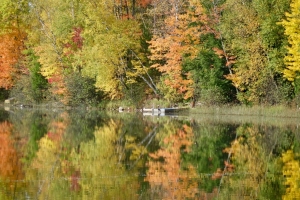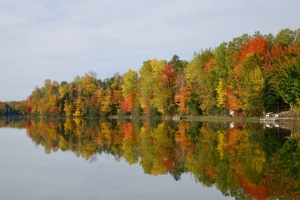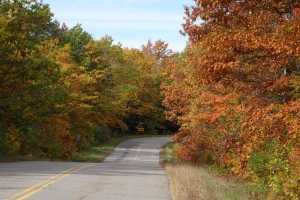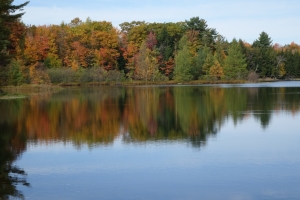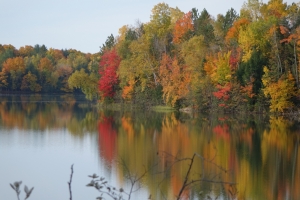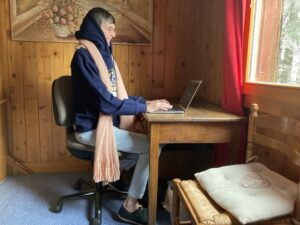 “The natural writer is the one who is always writing; if only in his head-sizing up a situation for material, collecting impressions.”
“The natural writer is the one who is always writing; if only in his head-sizing up a situation for material, collecting impressions.”
I seek out people to interview, new places to visit, stories to share, all the while feeling off balance and a bit loco.
“You develop an extra sense that partly excludes you from experience,” says Martin Amis. “Writers are not really experiencing things fully, 100%. They are always holding back and wondering what the significance is.”
“Every person who does serious time with the key board is attempting to translate his version of the world into words so that he might be understood. The great paradox of the writer’s life is how much time he spends alone trying to connect with other people.” (Forest for the Trees by Betsy Lerner p. 36)
That’s me in a nutshell. I struggle to experience everyday life in my various roles while capturing each milestone and new adventures on paper.
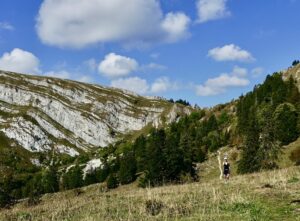 Looking back at my career, one reason I loved the game of basketball was because the fast pace and concentration needed to play prevented this dual existence. There was no time be an observer and participant. On the court, I had to be 100% engaged. The game demanded total focus of mind and body.
Looking back at my career, one reason I loved the game of basketball was because the fast pace and concentration needed to play prevented this dual existence. There was no time be an observer and participant. On the court, I had to be 100% engaged. The game demanded total focus of mind and body.
But off the court, stories pinged off my brain like pinballs.
In the car as a child on cross country vacations, I wrote stories about the plantations down south, the ranches out west and Victorian homes on the East coast. In college, I stretched out in the back of the campus station wagons on basketball road trips, and wrote character sketches of teammates in my mind. As a globetrotting, adult the sights outside the window of my plane, train, bus or car gave me ample material for stories.
As a student, I daydreamed so much, it’s a wonder I ever passed 1st grade.
Even during my teaching career, while standing in the field during PE lessons in Switzerland, my mind wandered to our mountain views where shepherds tended sheep in alpine meadows. Lost in reverie, I forgot to whistle off sides in soccer, out of bounds in field hockey or strikes in softball, until a student complained forcing me back to reality.
To be in the moment is hard for a writer.
 I am torn between the different cultural, geographical and the physical worlds of Switzerland, France and the USA, and also from the emotional, imaginary one of living life and recording it simultaneously.
I am torn between the different cultural, geographical and the physical worlds of Switzerland, France and the USA, and also from the emotional, imaginary one of living life and recording it simultaneously.
Writing keeps me grounded. I process life through words. During fleeting moments, my purpose becomes crystal clear as I search my path, stumbling over obstacles along the way. In writing, I lose myself. Like playing basketball, I enter “the zone,” without the euphoria.
After writing, I am spent. My fingers cramp. My shoulders ache. My back throbs. I need to stretch my limbs frozen to the chair.
Writing is a constant battle of wills between the creative brain and the logical one. Why spend so much time doing something that brings no financial rewards and few emotional ones?
I swear off practicing my art, stop typing, lock up in writer’s block. Inevitably, I eventually return to the blank page because not writing is even more excruciating.
My shelves are full of memoir, novel and screenplay drafts. Without writing my life seems meaningless. Only in the retelling, can I comprehend the raw experiences of my soul.
Writing unleashes the mystery in our human existence.
But damned if it doesn’t drive me crazy.
Boxes, crammed with thousands of pages of newspaper articles, unfinished manuscripts, half bake books and segments of stories, ferment like a compost pile under my bed.
Why bother?
Language links us. Writer friends, please continue to put your muse to paper; reader friends, thank you a thousand times for keeping connected. Without readers do I exist?
I write, therefore, I am.

 Apologies to my loyal readers, friends and family for being out of touch, off line, disconnected. Estranged from everyone, I shut down, closed off my heart and buried hope.
Apologies to my loyal readers, friends and family for being out of touch, off line, disconnected. Estranged from everyone, I shut down, closed off my heart and buried hope. When I can muster enough energy to go out, friends will say, « You don’t look sick, » and assume I am cured. All the while the invisible body snatchers eat away at my cells turning my brain to spaghetti, my muscles to mush.
When I can muster enough energy to go out, friends will say, « You don’t look sick, » and assume I am cured. All the while the invisible body snatchers eat away at my cells turning my brain to spaghetti, my muscles to mush.














